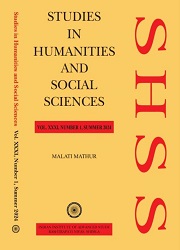From State Control to Digital Surveillance:
A Comparative Analysis of Value Erosion in 1984 and The Circle
Keywords:
Digital surveillance,, Human Values,, Dystopian literature,, Privacy Ethics, Technological mediation,Abstract
This study conducts a comparative literary analysis of George Orwell’s 1984 and Dave Eggers’ The Circle to examine the systematic erosion of fundamental human values through institutional and technological power structures. With a methodological framework incorporating value systems theory, literary-digital analysis, and theoretical perspectives of post-truth, the analysis, in particular, inspects the change of three fundamental human values such as authenticity, privacy, and natural interpersonal relations. The research demonstrates a significant paradigm shift from state-mandated authoritarian oppression to corporate-digital exploitation, where individuals voluntarily relinquish essential values through technological mediation. Through comparative narrative techniques and close textual analysis, the exploration unveils how these literary works, regardless of their temporal separation, shed light on similar apparatuses of value degradation functioning via diverse control structures. The findings indicate that contemporary digital surveillance and social media platforms mirror and amplify the dystopian warnings presented in both literary works, albeit through more subtle and participatory means. In addition, the study reveals how technological structures methodically restructure moral hierarchies, leading to a standardized approval of the invasion of privacy and the commercialization of human knowledge. This research contributes to the growing discourse on digital ethics and human values by providing a literary-theoretical framework for understanding value erosion in modern digital society. The analysis surmises that these texts work as vital cautionary tales, providing perspectives on the intricate interface connecting technological progress and the system of human values while highlighting the critical need for upholding primary human values in a progressively digitized milieu. The implications extend beyond literary analysis thus inform contemporary debates about digital privacy, authenticity, and human agency in the age of omnipresent technology.



